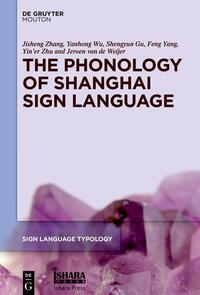
Applying the framework of the Prosodic Model to naturalistic data, this book presents a systematic study of the phonological structure of Shanghai Sign Language (SHSL). It examines the handshape inventory of SHSL in terms of its underlying featural specifications, phonetic realization and phonological processes such as assimilation, epenthesis, deletion, coalescence, non-dominant hand spread and weak drop. The authors define the role of the prosodic hierarchy in SHSL and analyze the linguistic functions of non-manual markers. This systematic investigation not only contributes to our understanding of SHSL itself, but also informs typological research on sign languages in the world.